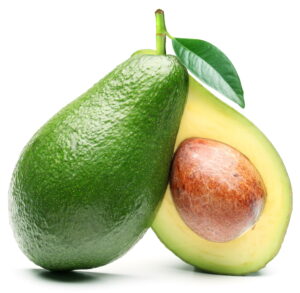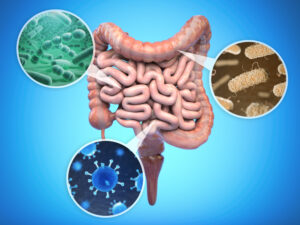What You Need To Know About Low-Inflammation Foods

Article At A Glance:
•Inflammation is the body’s natural process to fight against infection; chronic inflammation can lead to disease
•Healthy fats, probiotics, and prebiotics can all help fight inflammation and promote healing
Here at All-Star Nutrition, we talk a lot about supporting healthy gut function and easing inflammation in the body to help manage and reduce the symptoms of autism. But what exactly do we mean by inflammation, and why is it important to help lessen it?
Inflammation is when the body goes into defense mode by increasing the production of white blood cells and preparing to fight disease. While this is a necessary function, chronic inflammation is what we are trying to avoid. And the reason we want to stay away from sugars, pesticides, dairy products, and other toxins is because they are what the body doesn’t like. In other words, your system is trying to fight off the very foods you are feeding it.
The 2R Protocol is what we use to promote healing and wellness for our children. It refers to 1) removing unhealthy foods, and 2) repairing the body with foods and supplements. So let’s dig a little deeper into the kinds of foods that are low-inflammatory:
Healthy Fats
For too long, fats have gotten a bad name. Did you know that the sugar industry once paid scientists to lobby against fat and make it seem like the enemy? This led to the low-fat/ no-fat craze that in the end made us sicker, fatter, and dumber. Sugar is the real enemy here, while healthy fats are tremendously important for healthy brain function. Foods like avocado, coconut oil, fish, and grass-fed butter are all examples of healthy (and delicious!) fats to include in your family’s diets.
Probiotics
Probiotics are another example of low-inflammatory foods that promote gut health. These are about reintroducing good bacteria. While the term often makes people think of supplements, probiotics can also be found in foods. Kim chi, sauerkraut, and kombucha are ways to consume probiotics in our diets. We do suggest staying away from yogurt as a source of probiotics, as yogurts are usually filled with sugar and artificial sweeteners and are also dairy or soy-based.
Fiber & Prebiotics
Prebiotics are basically carbohydrates that support the growth of good bacteria in the gut that help to balance out and counteract the bad bacteria. Examples of these foods include sweet potatoes, carrots, asparagus, and butternut squash. And as always, opt for organic produce whenever possible to avoid pesticides.
*This website is provided for informational purposes only and is not intended as a substitute for the advice provided by a healthcare professional.
References
- Anti-Inflammation Diet 10
- Remove These 4 Unhealthy Foods (2R Protocol: Part 1)
- Probiotic Not Doing Its Job? Here’s Why
- How The Sugar Industry Shifted the Blame to Fat

A Revolutionary 5-1 Bio-Heal Probiotic
Helping Children Reach Their Full Potential
Click To Learn More
Join Our Community
Join the premier support group of parents, teachers, and caretakers dedicated to
Click To Learn More




